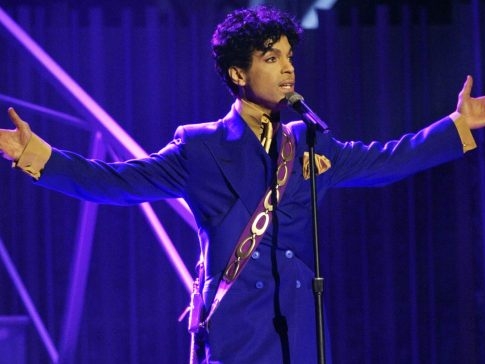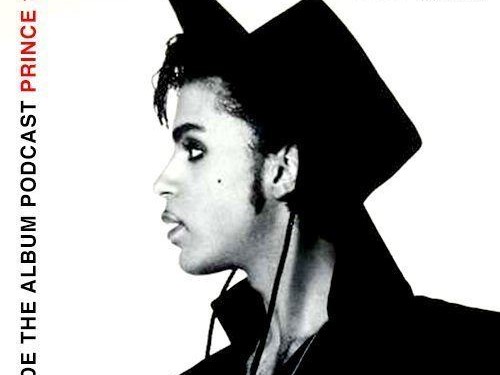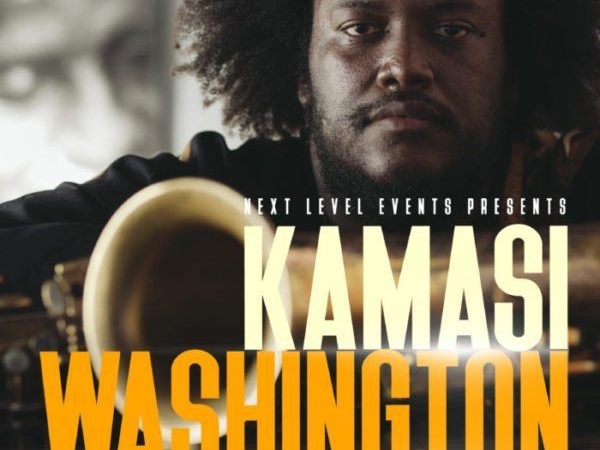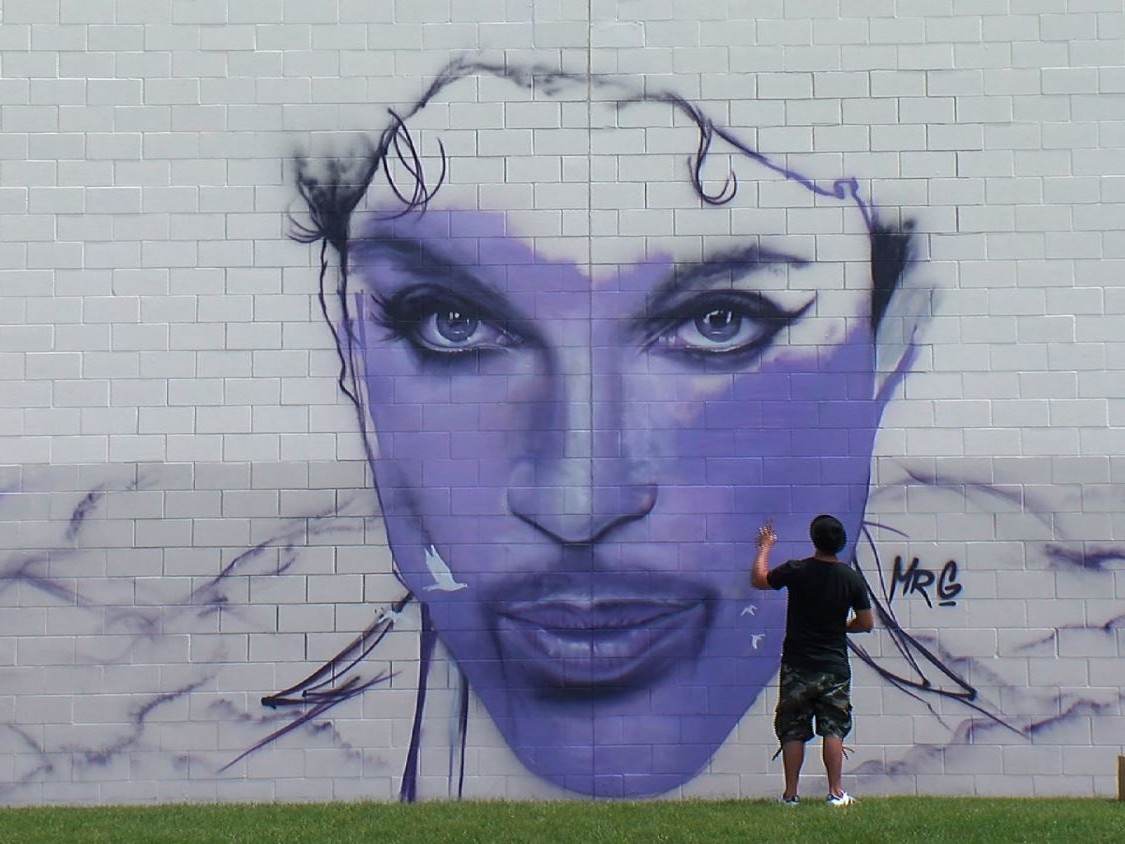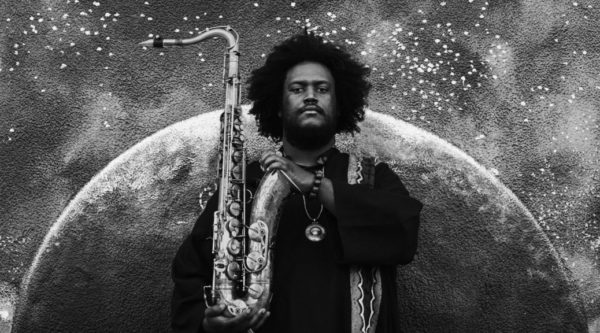
Grown Folks Music caught up with Los Angeles jazz saxophonist Kamasi Washington. In addition to having a critically- acclaimed album of his own, The Epic, which was released a year ago almost to this date, he is one of the jazz musicians responsible for crafting Kendrick Lamar’s To Pimp A Butterfly. Washington talked with us about starting out early in his journey with jazz music, the bridge that an album like To Pimp A Butterfly creates between young musicians and jazz and the influence of Prince. Read below and enjoy. Also if you’re in Atlanta, check out Kamasi Washington live at the Variety Playhouse, 1099 Euclid Avenue Northeast, Atlanta, GA, on May 4 at 8pm.
GFM: You’re a part of a group of young jazz musicians from South Los Angeles. Tell us about how your musical journey started and how you came to play jazz– more specifically a more traditional style of jazz.
KW: I’m a second generation musician so started playing music really, really young. I can’t even really remember when I started– somewhere around 2 or 3 years old. Jazz has kind of always been in my life… always in the house… always around. My real personal love for it started when a cousin of mine really turned me on to Art Blakey and The Jazz Massengers. Something about that music really spoke to me. I was about 11 years old. From there on I was hooked.
GFM I know that you helped to craft Kendrick Lamar’s album. With success of his album and the critical success of your album, do you think that there will be a bridging of the gap between younger listeners and jazz and even (for) younger artists… (serve as an) inspiration for them to create jazz music?
KW: I think there’s an awakening in the general public. They’re searching for something that speaks to a deeper part of their person. Someone like Kendrick Lamar, as brilliant as he is, making an album like To Pimp A Butterfly… it just set them on a path of where they can find that. You’re right, it’s going to also inspire the younger musicians to create the music that they hear. Sometimes as a musician you may hear a certain kind of music, but if you don’t know where it can live or how it can be used or how you can share it with anyone, you might not make it. You might not create that music. On both sides it affected the audiences and it affected the musicians in a way that’s going to be cool. I think it’s going lead to some really cool music coming out into the world.
GFM: Speaking of generations, are there any artists who you are mentoring?
KW: There are lots of young musicians I’ve been running into. I recently spoke at the Grammy in the Schools All-Star Jazz [event]. They had a dinner and I met all those young musicians and they are super talented. There’s a young piano player named Jamael Dean. He’s 17 years old. He plays with me sometimes. He’s always telling me about all the young bass players and drummers. There’s a saxophone player named Aaron Shaw and his brother Lawrence Shaw. Ronald Bruner and Thundercat have a little brother named Jameel. There’s a lot of young musicians that are around and I’m always excited to hear what they’re doing. It’s inspirational, because they have a whole different approach. It’s good for us. I don’t wanna say I’m older [laughs], but I’m not as young as them. [They help to] stay connected to what’s happening now.
GFM: I always like to ask about the story behind an album title, especially when there’s no track on the album of the same name. Tell us the story behind the title The Epic.
KW: When I was working on The Epic, I had so much music to choose from. By the time I stopped recording I had 45 songs that I was trying to make an album out of. My thought process from the beginning was I was trying to make a single disc– 80 minutes of music. In going through all of that music I found 17 songs that I felt had a connection made the statement that I was trying to make, but they were much more than one disc worth of music. So, for months I was trying to figure out how I could turn those 17 songs [into one disc]– either by moving those songs, or combining them, or doing something to turn them into one disc. In the process of working on those songs, I had this crazy dream that turned into a story that I kind of started working on. That’s what inspired me to leave in tact and make it one continuous album. The Epic is the story. The album is named after that. I meant it in terms of a story.
GFM: You did a Prince tribute at Coachella. Talk about the influence, if any, he had on you as an artist.
KW: His music influenced me greatly. Prince had an approach to making music that is certainly one of the building blocks of modern music. If you can play hip-hop and modern r&b, and really rock n roll too, then you have to have an understanding of Prince’s music. It’s that groove that he had… that sense of rhythm… it’s something you have to have and it’s powerful. There’s such a deep connection. Music is kind of a living thing and different people are connected to it at different levels. Prince was really connected to music in a really, really, profound way.
Beyond the musical or technical thing– the thing you have to know from his music– it’s the inspiration of who he was. In LA there’s always stories of Prince coming to somebody’s jam session or coming to someone’s gig and sitting in and just being immersed in music even though he’s this super-legendary superstar. He’s kind of still like a kid in the sense that he was just in love with music and [he] always wanted to be a part of anything that was cool that was happening in music. That was always inspirational. He would have surprise shows and throw parties where he’d perform all night. He never lost his love. Regardless of the fame and the money, he never lost his love for music. So, that was always an inspiration for me.
GFM: What’s your definition of Grown Folks Music?
KW: When I think of grown folks music I think of music that is appreciated truly. When you think about music that people look at as coming from grown folks– the more mature musical listener listens to music because it has true connection to them. Sometimes as kids, we may get into music because it’s a fad or because we think other people are into it. Grown folks music can go across the board. It doesn’t have to be a particular style. It doesn’t have to even be old. It can be brand new. There’s brand new grown folks music too. It’s just music that people enjoy purely because of what it speaks to them and not for any other social reasons.
Connect with Kamasi Washington:
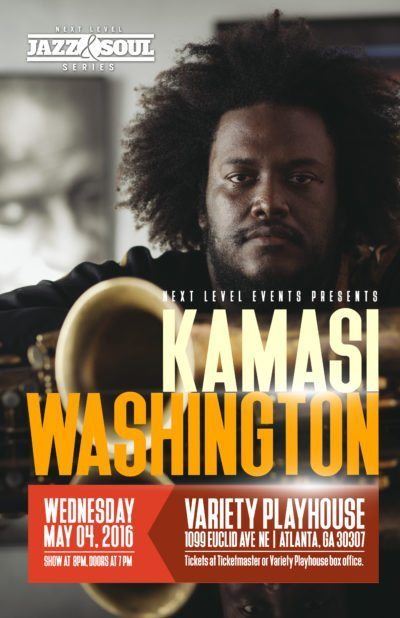
RELATED POSTS
July 20, 2014
Prince
June 16, 2016
GFM Inside The Album Podcast – Prince 1986
July 20, 2011
GFM Lounge
December 21, 2016
GFM’s Inside The Album Podcast: Prince – “Emancipation”
June 22, 2016

